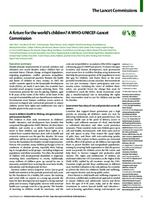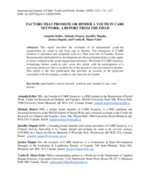Relationships between adverse childhood experiences and protective factors among parents at-risk for child maltreatment
This study used survey results to examine relationships between parental adverse childhood experiences (ACEs) and protective factors among a sample of 581 parents with young children (≤5 years) who were enrolled in child maltreatment prevention programs.


